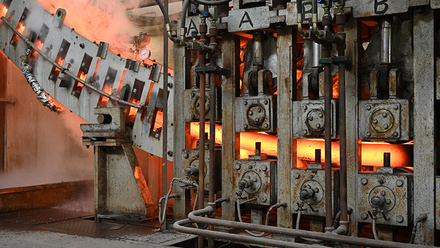British Industry Supercharger seeks to boost UK business
Measures will cut network charges and provide exemptions from electricity costs for firms in sectors like steel, metals, chemicals, cement, glass and paper.

The Supercharger, first announced and consulted on by the UK Government last year, includes a series of targeted measures to bring energy costs for key industries in line with other major economies, levelling the playing field for UK businesses.
The support will be made available to sectors particularly exposed to the high cost of electricity.
The measures will fully exempt eligible firms from certain costs linked to renewable energy policies, including the small-scale Feed in Tariff, Contracts for Difference and the Renewables Obligation, as well as GB Capacity Market costs.
There will also be a 60% reduction in network charges – the costs industrial users pay for their electricity supply.
Taken together, this support is expected to be worth around £24-31/MWh to industry on average, with the most electricity-intensive industries such as steel benefiting the most.
This is the average estimated saving, and government suggests a British energy-intensive business will end up paying about the same in electricity costs as its competitors in countries in the EU.
The Supercharger is expected to be worth between £320-410mln in total savings to UK businesses next year.
This builds on the Energy Security Strategy, published in 2022, which committed government to address the UK’s industrial electricity prices, which are higher than those of other comparable countries.
Dr Diana Casey, Executive Director for Energy and Climate Change, Mineral Products Association, says, 'Competitive industrial electricity prices are absolutely critical for cement and lime producers to remain competitive as they transition to net-zero, especially as key technologies like carbon capture, usage and storage will significantly increase power demand.'







